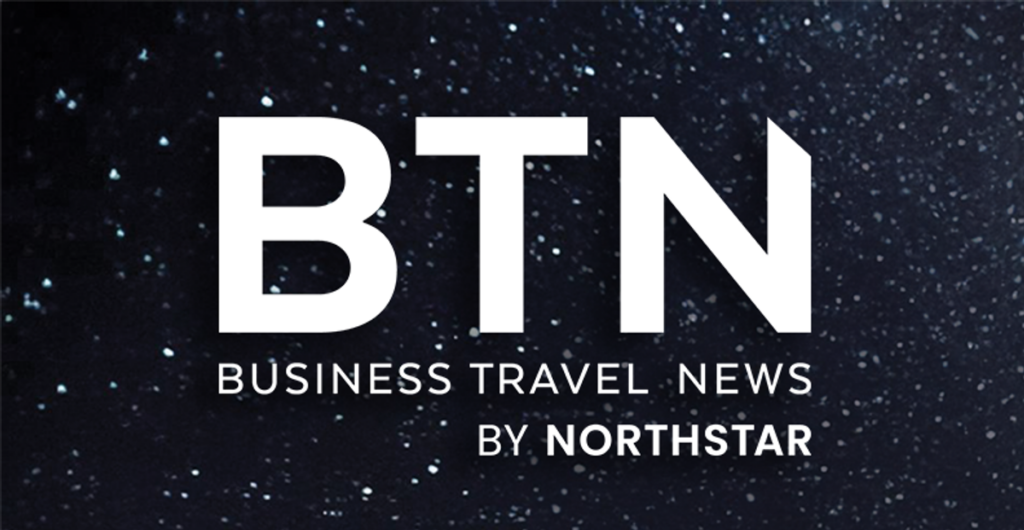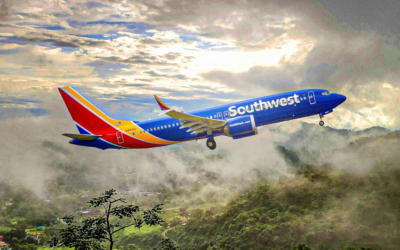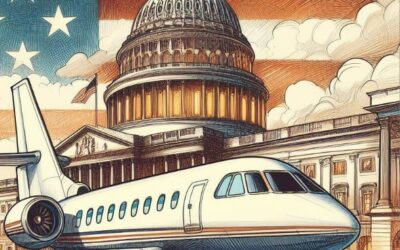
Total global ancillary revenue for airlines broke records in
2024, surpassing $148 billion, and carriers continued to grow through the
addition of these revenue streams.
IdeaWorksCompany published these findings in its 2025
edition of the “Yearbook
of Ancillary Revenue,” which revealed traditional airlines were “under
pressure with more traffic but lower fares” in 2024. However, these airlines
also saw a 5.3 percent passenger ancillary revenue increase that offset
losses from discounted fares.
The report analyzed ancillary revenue activity and results
from 61 airlines in 2024. When compared with the 58 airlines included in its
2023 carrier results, IdeaWorksCompany cited a 2.5% increase in total
ancillary revenue per passenger and a 3.8% decrease in all other revenue. The
latter is primarily comprised of passenger fares but also includes revenue from
cargo and services sold to other airlines.
While perhaps unsurprising, data revealed that low-cost
carriers clearly capitalize on ancillaries by giving passengers the ability to
pick and choose from multiple amenities.
These carriers came in highest on a list ranking airlines by
ancillary revenue as a percentage of their total revenue.
Frontier claimed the top spot at 62 percent, breaking the 60
percent ancillary revenue threshold in 2024 for the first time. The carrier was
followed by Spirit at 58.7 percent, Volaris at 55.3 percent, Breeze at 54
percent and Allegiant at 52.9 percent. All five airlines saw an increase in
these percentages compared to 2023, now generating more from ancillaries than
passenger fares.
Wizz Air, Viva Aerobus, Volotea, EasyJet and Pegasus rounded
out the top 10, with ancillary revenue percentages ranging from nearly 45
percent down to 34 percent.
“Joining the top 10 list requires maximum effort to generate
big cashflow from two crucial categories: baggage and assigned seats. These
airlines focus on limiting larger carry-on bags through policies and fees,”
said report author Jay Sorensen, president of IdeaWorksCompany.
“Best-performing carriers are also keen to adopt revenue
management methods for pricing assigned seats to increase or lower fees based
upon consumer demand.”
Norse Atlantic Airways, another LCC, also reported an
industry-first as its ancillary revenue totaled over $100 per passenger for a
full year.
Legacy Carriers Expand Basic Economy
Basic economy is another area that expanded last year, as
both traditional carriers and LCCs embraced the option.
“’You get what you pay for’ is an ancient pearl of wisdom
for both customers and airline managers,” Sorensen said.
“The à la carte choices presented by the ancillary revenue
movement have encouraged travelers to upgrade to more comfort and convenience.
Basic economy fares are designed to mimic low-cost carriers. While this
provides a fast revenue boost, it also makes traditional airlines more
like LCCs, which is the metamorphosis that is not without peril.”
Customer loyalty, for example, isn’t as big of a factor for
LCCs, even if they offer a frequent flyer program. This differs for more
traditional airlines.
The report found that the five largest U.S. airlines—Alaska,
American, Delta, Southwest and United—accounted for approximately $28 billion
in loyalty revenue in 2024, largely due to co-branded credit cards. By
IdeaWorksCompany’s estimates, this equates to $35.48 per passenger last
year.
Turnabout Is ‘Fare’ Play?
Southwest, however, may be gaining in its share of ancillary
revenue by next year. The carrier, which for more than a decade had resisted charging
fees both for baggage and assigned seats, changed its strategy this year. Amid
falling revenues, an activist investor takeover of the board and a the challenge
of legacy carriers introducing basic economy fares, Southwest began charging
for first and second checked bags in late May and began booking and charging
for assigned
seating in late July, for flights departing on or after Jan. 27, 2026. The
carrier is differentiating into a two-cabin configuration, with “premium”
extra-leg-room seating in the first five rows. It will also have “preferred” seating
as opposed to “standard,” giving the carrier more opportunity to flex ancillary
fee muscle.
Southwest isn’t the only LCC getting into the premium cabin
game. Frontier, which created a new business fare type Bizfare that includes baggage,
“premium” seat assignment, no cancellation or change fees and allows same-day
changes, is also set to introduce a two-row first-class cabin later this year.
What impact that might have on Frontier’s escalating ancillaries remains to be
seen.
__________________________________________________________
A version of this article originally ran in BTN portfolio-mate publication PhocusWire. BTN performed additional reporting.
Recent Posts
- NTSB releases safety alert on ballistic parachute recovery systems
- Textron Aviation names departure day Dove 1 for 2026 Special Olymics Airlift
- Supreme Court rejects Boeing's appeal to 737 MAX suit
- Things to remember when trying to forecast this business aircraft market
- New Duncan Aviation Vice president of Engine Operations Scott Stoki to drive enhanced customer support and service innovation







Recent Comments